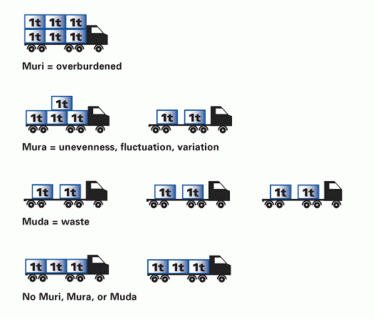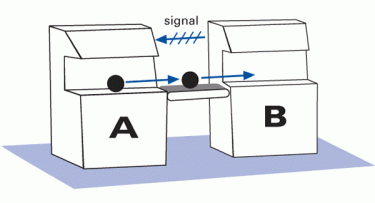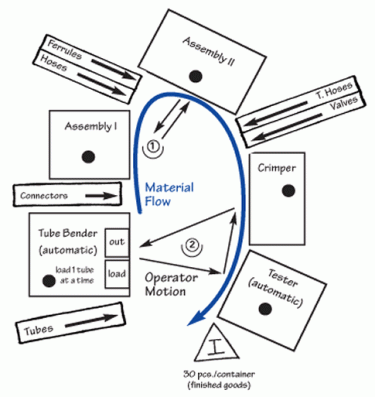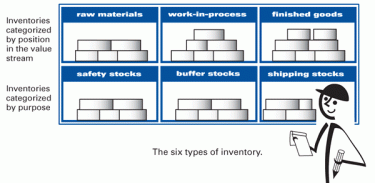Lexicon Term
Muda, Mura, Muri
Muda, Mura, and Muri are terms often used together in the Toyota Production System (and called the Three Ms) that collectively describe wasteful practices to…
Learn more
Lexicon Term
A-B Control
A way to regulate the working relationships between two machines or operations to control overproduction and ensure balanced use of resources. In the Illustration, neither…
Learn more
Lexicon Term
A3 Report
An A3 Report is a Toyota-pioneered practice of getting the problem, the analysis, the corrective actions, and the action plan down on a single sheet…
Learn moreLexicon Term
ABC Production Analysis
Segmenting part numbers into groups based on demand. Lean thinkers use this analysis to decide how much and for which products to hold inventory. A…
Learn moreLexicon Term
Basic Stability
Having essential capability, availability, and flexibility in the 4Ms — manpower, machines, materials, and methods. A lack of basic stability in a process prevents improvements…
Learn moreLexicon Term
Batch-and-Queue
A mass production approach to operations in which large lots (batches) of items are processed and moved to the next process—regardless of whether they are…
Learn more
Lexicon Term
Brownfield
An existing production facility, usually managed in accordance with mass production thinking.
Learn moreLexicon Term
Capital Linearity
A philosophy for designing and buying production machinery so that small amounts of capacity can be added or subtracted as demand changes. In this way,…
Learn moreLexicon Term
Cell
The location of processing steps for a product immediately adjacent to each other so that parts, documents, etc., can be processed in very nearly continuous…
Learn more
Lexicon Term
Inventory
Materials (and information) present along a value stream between processing steps. Physical inventories usually are categorized by position in the value stream and by purpose. Raw…
Learn more
Lexicon Term
Overproduction
Producing more, sooner or faster than is required by the next process. Ohno considered overproduction to be the most grievous form of waste because it…
Learn more








